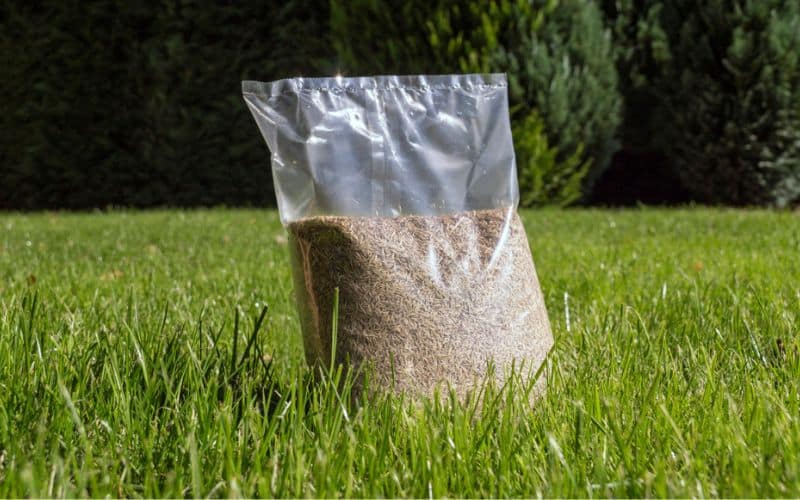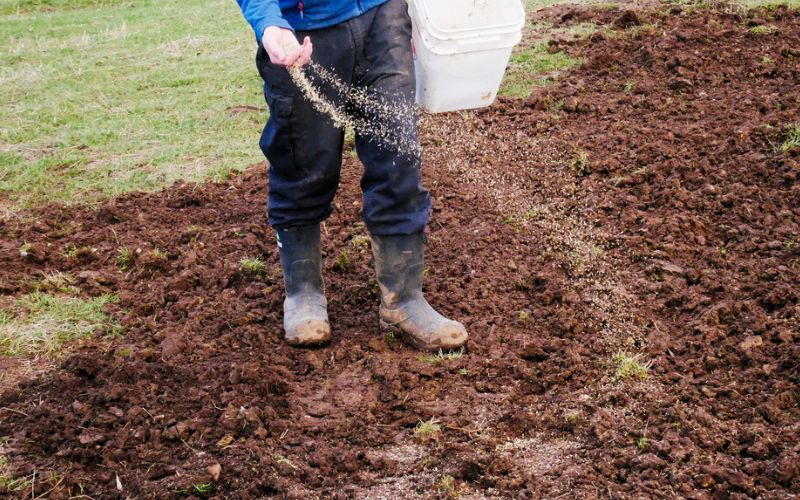
A lush lawn is the dream of every homeowner. It’s a symbol of pride, a canvas for your summer activities, and a testament to your dedication to maintaining your home’s curb appeal. But how do you achieve that dream? The answer lies in finding the best grass seed for your lawn.
Why Choosing the Best Grass Seed Matters for Your Lawn
Choosing the best grass seed is not just about aesthetics; it’s about creating a sustainable environment for your lawn to thrive. The right grass seed can resist pests and diseases, withstand harsh weather conditions, and require less maintenance. It’s about finding a balance between what grows best in your area and what meets your personal preferences and lifestyle.
Understanding the Different Types of Grass Seeds
There are many types of grass seeds, each with its unique characteristics. Some are best suited for cool-season growth, like Kentucky Bluegrass and Tall Fescue, while others, like Bermuda, are warm-season grasses that thrive in hotter climates. Understanding these differences is key to choosing the right grass seed for your lawn.
Kentucky Bluegrass
Kentucky Bluegrass is a cool-season grass that’s known for its beautiful dark green color and fine texture. It’s a popular choice for lawns in many parts of Canada, thanks to its ability to withstand cold winters. However, it requires a good amount of sun, so it’s best for lawns that get at least 6 hours of sun each day.
Tall Fescue
Tall Fescue is another cool-season grass, but it’s more heat and drought-tolerant than Kentucky Bluegrass. This makes it a great choice for areas with hot summers. It has a coarser texture but is highly durable, making it perfect for high-traffic lawns.
Bermuda
On the other hand, Bermuda is a warm-season grass that loves the sun and heat. It’s incredibly durable and can withstand heavy use, making it ideal for sports fields and public parks. However, it doesn’t do well in shade, so it’s not the best choice if your lawn has a lot of trees.

What Makes the Best Grass Seed of 2023 Stand Out?
The best grass seed of 2023 is not just about the type of grass, but also about the quality of the seed mix. A good grass seed mix will have a high germination rate, meaning most of the seeds will successfully grow into grass. It will also have a mix of different types of grass to ensure a dense and lush lawn.
Scotts Turf Builder Grass Seed is one such mix. It’s designed to absorb more water than uncoated seeds, ensuring each seed gets the moisture it needs to germinate. It also contains a mix of different types of grass, including Kentucky Bluegrass and Tall Fescue, making it suitable for a variety of climates.
How to Choose the Best Grass Seed for Your Lawn?
Choosing the best grass seed for your lawn depends on several factors. First, consider your climate. Cool-season grasses like Kentucky Bluegrass and Tall Fescue grow best in cooler climates, while warm-season grasses like Bermuda thrive in heat.
Next, consider the amount of sun your lawn gets. Some grasses, like Kentucky Bluegrass, need a lot of sun, while others, like Fine Fescue, can tolerate shade. If your lawn gets a mix of sun and shade, consider a sun and shade mix.
Finally, consider the use of your lawn. If it’s a high-traffic area, you’ll need a durable grass like Bermuda. If it’s mostly for show, a fine-textured grass like Kentucky Bluegrass might be more suitable.
What Type of Grass Seed Thrives in Full Sun?
Full sun lawns, those that receive 6 or more hours of sun each day, have the widest range of grass seed options. Warm-season grasses like Bermuda and cool-season grasses like Kentucky Bluegrass and Tall Fescue all thrive in full sun.
The Role of Bermuda Grass in a Healthy Lawn
Bermuda grass plays a crucial role in maintaining a healthy lawn, especially in warm climates. Its durability and heat tolerance make it perfect for areas with hot summers. Plus, its aggressive growth habit helps it crowd out weeds, reducing the need for chemical weed control.

How to Establish a New Lawn with the Right Grass Seed?
Establishing a new lawn requires careful planning. Start by testing your soil to determine its pH and nutrient levels. This will help you choose the best grass seed for your soil type.
Next, prepare your soil by removing any existing grass and weeds and loosening it with a garden rake. Then, spread your chosen grass seed at the recommended rate and lightly rake it into the soil. Keep the soil consistently moist until the grass germinates and reaches a mowable height.
What Grass Type is Best for Canadian Climate?
For Canadian climates, cool-season grasses like Kentucky Bluegrass and Tall Fescue are typically the best choices. These grasses can withstand the cold winters and still look great in the summer.
Why is Scotts Turf Builder Considered Among the Best Grass Seeds?
Scotts Turf Builder is considered among the best grass seeds because of its WaterSmart PLUS Coating. This coating absorbs more water than uncoated seeds, feeds the seedlings to jumpstart growth, and protects the seeds from disease. This ensures a higher germination rate and a healthier lawn.
Kentucky Bluegrass: Is it the Right Grass Seed for Your Lawn?
While Kentucky Bluegrass is a popular choice for many homeowners, it’s not right for every lawn. It requires a good amount of sun and regular watering to stay healthy. If your lawn is shady or you live in a hot, dry area, a different type of grass might be a better choice.
Final Thoughts: Achieving a Healthy Lawn with the Best Grass Seed
Choosing the best grass seed is the first step towards achieving a healthy, green lawn. By considering your climate, the amount of sun your lawn gets, and the use of your lawn, you can find the perfect grass seed to create the lawn of your dreams. Remember, a great lawn starts with great seed!
Colin Macmillan is a seasoned entrepreneur and the CEO of Riverwood Landscape, a leading landscaping company based in Canada. He has been at the helm of the company since leaving high school, demonstrating his strong leadership skills and business acumen.
Colin’s expertise lies in various aspects of landscaping, including lawn care, interlocking, sod installation, and commercial maintenance. His hands-on approach and dedication to the craft have been instrumental in building Riverwood Landscape into a reputable brand.
One of his most notable achievements is the creation of a successful landscape franchise that services multiple locations. This accomplishment underscores his strategic thinking and ability to scale operations effectively.
Colin has also had the privilege of working with Guelph Hospital for landscaping and maintenance, a testament to the trust and reliability that his company has earned over the years.
His professional mission is to offer the best services and experiences for customers, a goal that he tirelessly pursues. Colin’s commitment to excellence and customer satisfaction continues to drive the growth and success of Riverwood Landscape.








